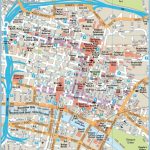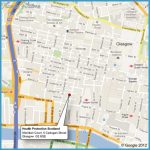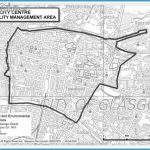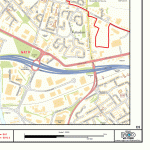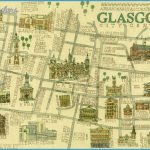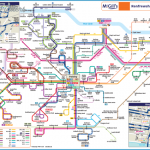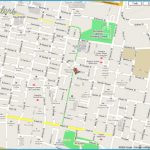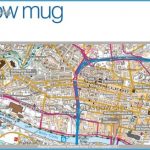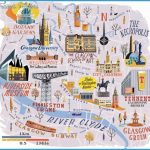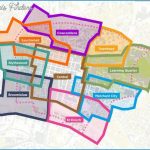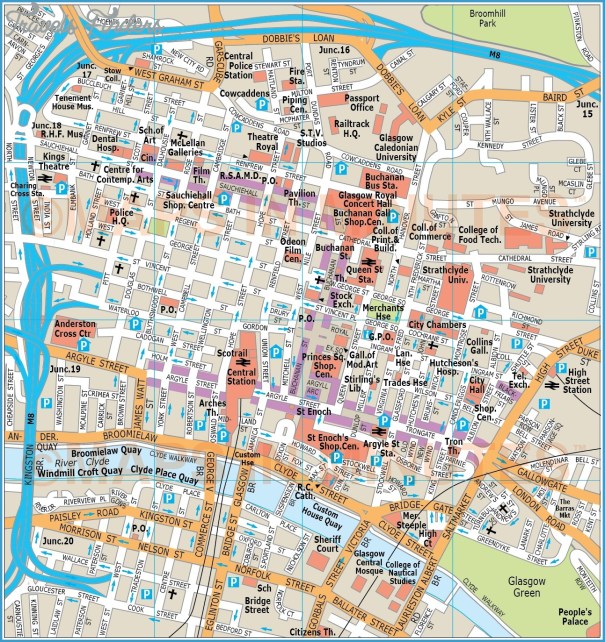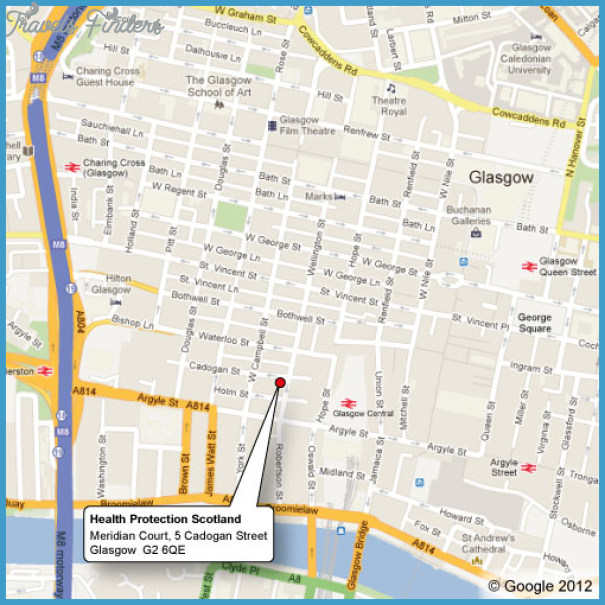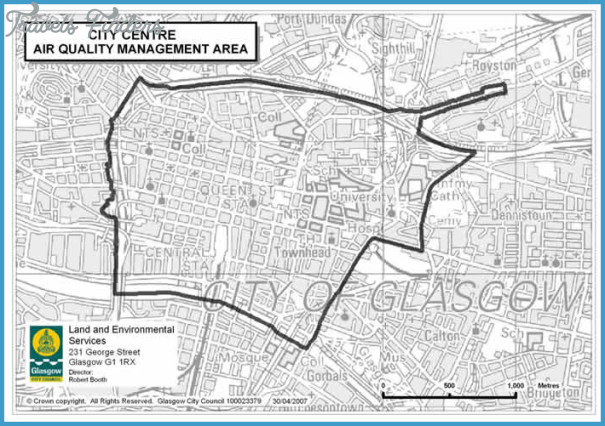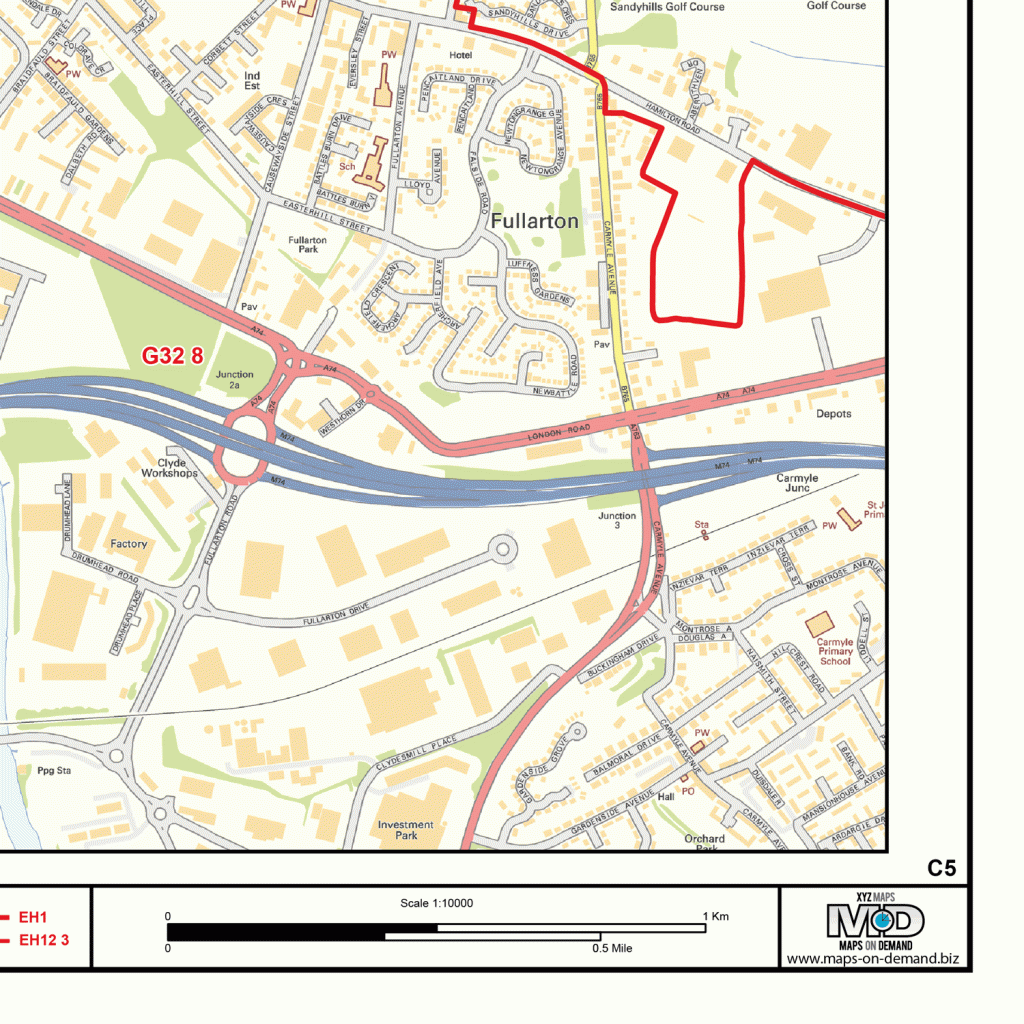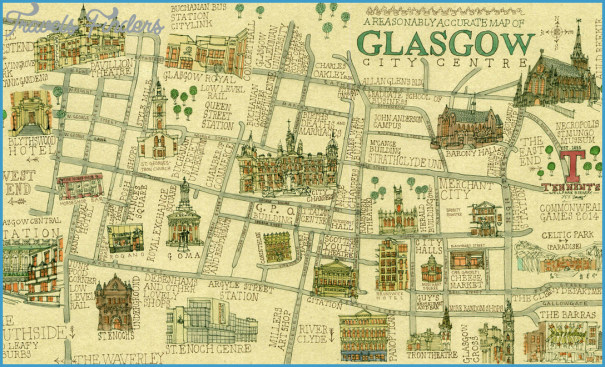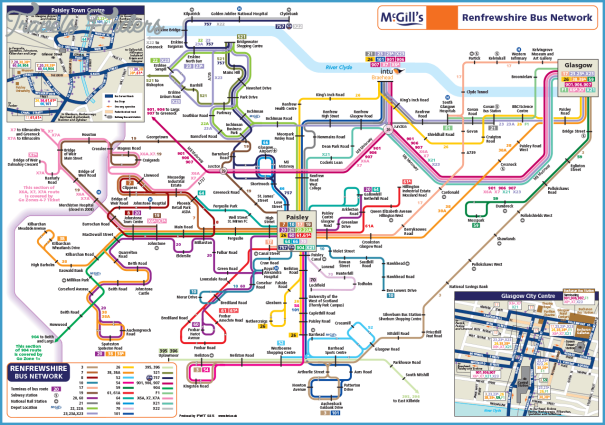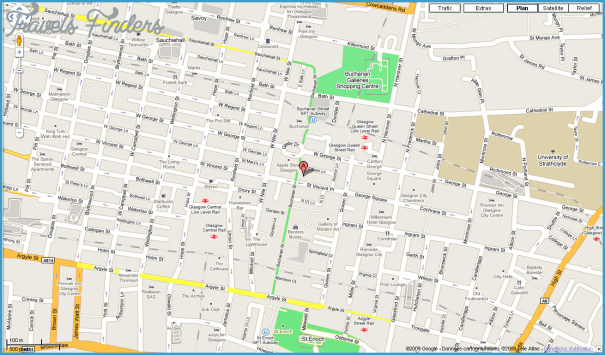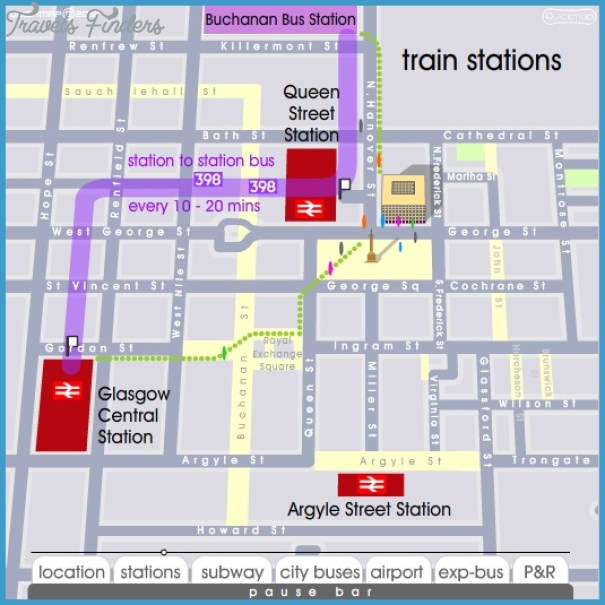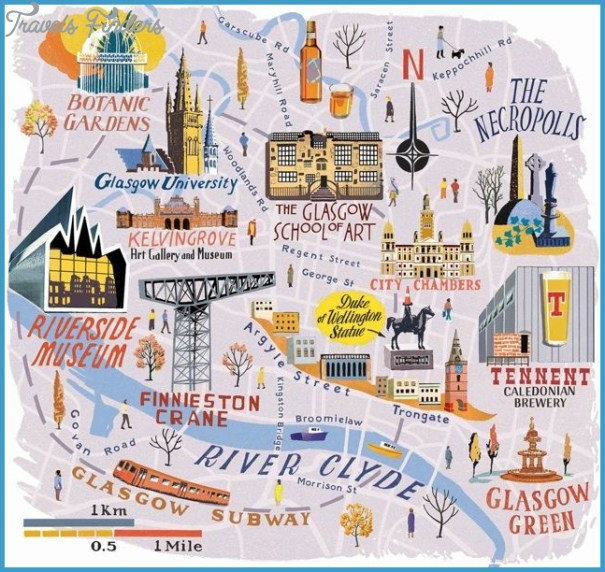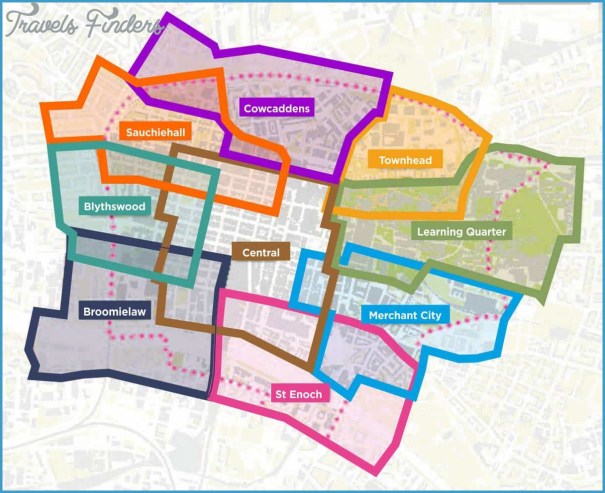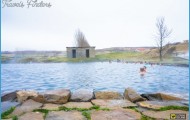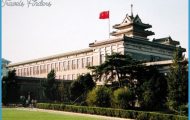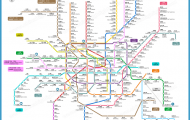Glasgow Stock Exchange 155-59 Buchanan Street 63-69 Nelson Mandela Place
Statue of St Andrew and decorative carving
Architects: John Burnet 1875-1877
Sir John James Burnet 1894-1898 Sculptors: J & G Mossman
Inspired by the Royal Courts of Justice, this building is in the Venetian Gothic style. The Glasgow Stock Exchange was founded in 1844 and was operating from this building until 1973, when it merged with the London Stock Exchange. See if you can spot the terrible restoration work applied to one of the statues on the corner of the building.
House of Fraser Department Store 45 Buchanan Street 134-56 Argyle Street
Winged Female Figures and Imperial Arms;
Pair of Atlantes
Sculptors: William Vickers
Architects: Campbell Douglas & Sellars;
Horatio Kelson Bromhead
One of the largest warehouse buildings of its time, the Renaissance-style House of Fraser on Argyle Street is ably supported by a pair of Atlantes, identical in design, and known as ‘Stewart and ‘McDonald in popular parlance, after the wholesale drapery merchants who commissioned the warehouse. On the Buchanan Street side, a decorative pedestal supports the imperial arms, to both sides of which we see allegorical female figures representing Art and Industry, and carrying a palette and brushes and a distaff, respectively.
Map Of Glasgow City Centre Photo Gallery
Just above the first floor we see a number of podgy male youngsters playing amongst an abundance of garlands and fruit. The building was originally opened as a ‘tea and luncheon roomby one Catherine Cranston, who amongst other things was a leading advocate of temperance.
The fourth storey of this fin de siecle Baroque building features a pair of freestanding allegorical female figures: Justice on the left, holding a sword and a pair of scales; Truth on the right, holding a mirror and having removed a blindfold from her eyes. The design was influenced by the extremely narrow site it had to be built on.
Highly fitting for the headquarters of a major Scottish newspaper, the four vertical relief panels on this building depict figures performing various activities related to the production of a newspaper: carrying a bed of type, working a press, conducting an interview, and, apparently, weeping. The building was erected as a monument to the flourishing and wealthy Glasgow Herald at the end of the nineteenth century.

